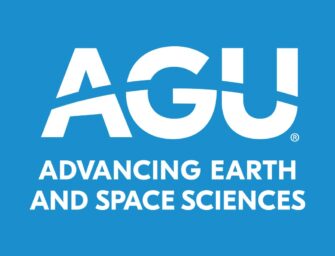Moments that Changed History – 9 December 2014
In 59 BC, one of the earliest known newspapers, the Acta Diurna, is believed to have been founded by Julius Caesar.
In 1450, Johannes Gutenberg invented the printing press.
In 1974, an online only publication, the News Report, was launched on the PLATO system – a predecessor to today’s internet – at the University of Illinois.
In 1979, AGU began printing its formerly monthly publication, Eos, as a weekly newspaper.
On 9 December 2014, that same publication, now known as the flagship newspaper of the Earth and space science community, will be re-introduced yet again, as a dynamic, broadly inclusive and freely accessible online publication – Eos.org.
Every week for 35 years, Eos has delivered Earth and space science news, research, features and announcements to AGU members. But in this age of digital media, a weekly print only publication is no longer the only, or best, way to serve the needs of our community. How can we take our science to an even broader audience and provide the Earth and space science community with an improved platform for engagement?
Enter Eos.org . . . .
One of the first benefits you will notice is the steady stream of new content being posted to the site every day – which is why we have made sure that the site design is optimized for viewing across multiple platforms. Popular content – including Research Spotlights, AGU News, Job Listings, and Features – will still have a home on Eos.org, as will news coverage of issues within and related to the Earth and space sciences. However, content on Eos.org will be written and presented in a manner that makes it readable on your iPhone at the gate waiting for your plane or on your tablet or laptop at home on a Sunday morning. We will also be expanding our selection of news, features and opinion pieces, and adding new content, such as blogs, special series, and pieces that focus on explorations of trends or issues that will impact our science – such as the increasing importance of inter-and trans-disciplinary science.
While I believe you will find the new site to be a vast improvement, launching on 9 December isn’t the end of Eos.org’s story. More interactive features will be introduced in the spring of 2015 and again in the fall of 2015. Thereafter it will be improved iteratively, based on AGU’s growing digital and editorial capacity, and the knowledge drawn from web analytics and audience feedback, as well as the continued active participation of the Eos Online Advisory Panel and the Eos Editors and Editorial Advisory Board.
As exciting as the new Eos site is, it doesn’t mean that we are completely moving away from print. Instead, the advent of Eos.org is providing us with an exciting opportunity to re-launch a new and improved print version. In early 2015, Eos will become a bi-monthly, color magazine, the digital version of which will also be available on Eos.org in a tablet-friendly format. The magazine will be mailed to all U.S. members who do not opt out at the time of membership renewal, and will be made available to international members upon request (due to high cost of international mailing).
This much needed change was inspired by AGU’s strategic vision and plan, and informed by a readership survey, member and stakeholder interviews and an advisory committee of AGU members. And I’m pleased to say that it is only the first step in a comprehensive digital transition underway here are AGU. Eos.org is the first of three interrelated elements of an overall digital content strategy, the other two being a re-envisioned AGU.org and a yet-to-be-named science news site targeted to the non-science public. I encourage you to stay tuned over the next few weeks and months for more information and announcements about these exciting developments.
So, on 9 December, I invite you to join me in kicking off this exciting new chapter in the history of Eos. And, if you can’t wait until then to increase your engagement with Eos, you can start following us today on Twitter at @AGU_Eos.




[…] few weeks ago I shared some very exciting news with you about a new addition to the AGU family (Moments that Changed History – 9 December). Well, the big day has finally arrived . . […]